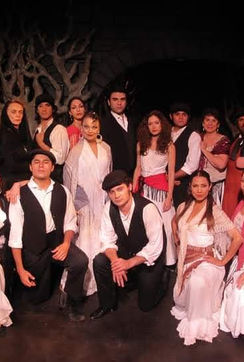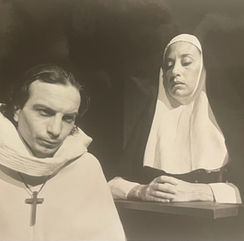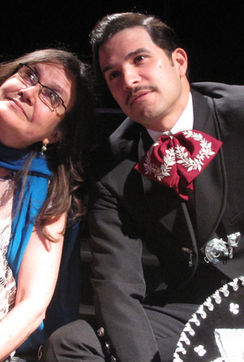
Our Legacy lives on
In the 1960s, Los Angeles was a hotbed of social change, with Latinos facing unique challenges as they fought for equality and recognition. Cesar Chavez, co-founder of the United Farm Workers Union (UFW), led a movement to improve conditions for farmworkers, inspiring a wave of activism through theater. Chicano students protested educational inequities, and the Chicano Moratorium rallied against the Vietnam War’s disproportionate toll on Mexican-American soldiers. Latinos, despite being a significant part of the population, continued to experience racial discrimination and limited opportunities.
In 1973, Carmen Zapata, Margarita Galban, and Estela Scarlata founded the Bilingual Foundation of the Arts (BFA) to nurture Latino talent and celebrate the richness of Hispanic culture. Over the years, BFA has innovatively staged both classic and contemporary plays, pioneering bilingual performances that resonate with diverse audiences. The foundation’s vision for the future is the establishment of a permanent artistic home: “The Carmen Zapata and Margarita Galban BFA Theater.” This new venue would preserve BFA’s legacy and continue sharing its cultural treasures with all of Los Angeles.
With support from actors, technicians, volunteers, and patrons, BFA has created a lasting legacy that empowers the Latino community and enriches American cultural diversity through the art of theater.
Happy 50th anniversary to the Bilingual Foundation of the Arts,
Our Legacy Lives on!



YOU CAN BE PART OF OUR HISTORY

50 years of history
Happy 50th anniversary to the Bilingual Foundation of the Arts
Discover the incredible legacy of the Bilingual Foundation of the Arts in our documentary. This film captures the heart and soul of our mission to bring bilingual theater to Los Angeles, enriching the Latino community with classic plays in their own language. More than just performances, it's about preserving our culture, leaving a lasting legacy, and inspiring both Latino and non-Latino audiences with the vibrant contributions of our heritage. Watch the documentary and be part of this cultural journey.
















.png)

